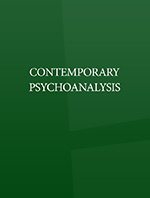Psychoanalysis and Culture

Wu, J.H. and Laws, D. (2003). Trust and Other-anxiety in negotiations: Dynamics across boundaries of self and culture: Negotiation Journal. 19 (4): 329-368.
Wu, J. (1994). On therapy with Asian patients: Contemporary Psychoanalysis 30(1): 153-168.
Excerpts:
Accounting for culture in the psychodynamic formulation of our patients and ourselves is a challenge for several reasons. We are accustomed to attend with loving relish to almost every detail of a person’s presentation… It is striking that then, that the cultural matrix from which a person’s history was likely to have been shaped or at least colored is, if often not ignored, then summarily acknowledged and then forgotten.
If such blindness or blind spot exists in a formulation, it is not without excellent cause. “Culture” is too broad a construct to capture in a single paper, or even many. However we know that an essential quality of it is its diversity: just as each person we meet is endlessly different than the last, so each culture has its own character… When Sullivan (1953) pointed out that “we are more human than otherwise”, the truism may also apply to culture… The essential challenge in bringing together psychotherapy and culture is the challenge to balance the knowledge of similarity and the knowledge of difference. Overemphasis on difference and reductionism based on those differences can lead to the crime of bigotry and stereotype. It is principally to avoid that pitfall that I believe we tend more to shy from investigation along cultural lines among the lines we usually pursue.
Writing about the psyche and psychotherapy of Asians requires a daunting chutzpah… “Asian” does not and cannot signify a homogenous group… Culture can no more be summarized than a formulation can convey the meaning of an individual’s life. Understanding the two together takes no less effort: in fact the difficulty is exponentially increased. However, to sacrifice the discussion altogether in order to avoid trite reductionism leaves us not richer. It is because our differences enrich us deeply that the endeavor to integrate culture is more than worth the effort.
